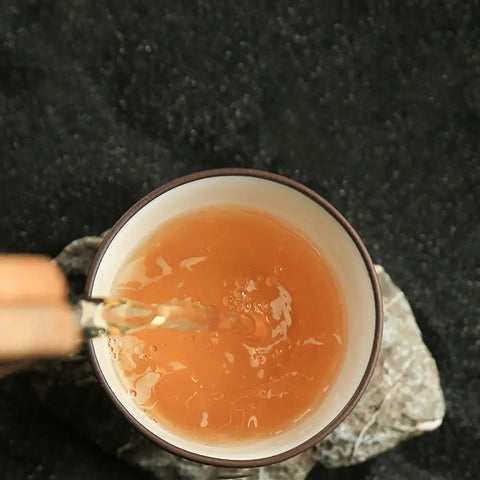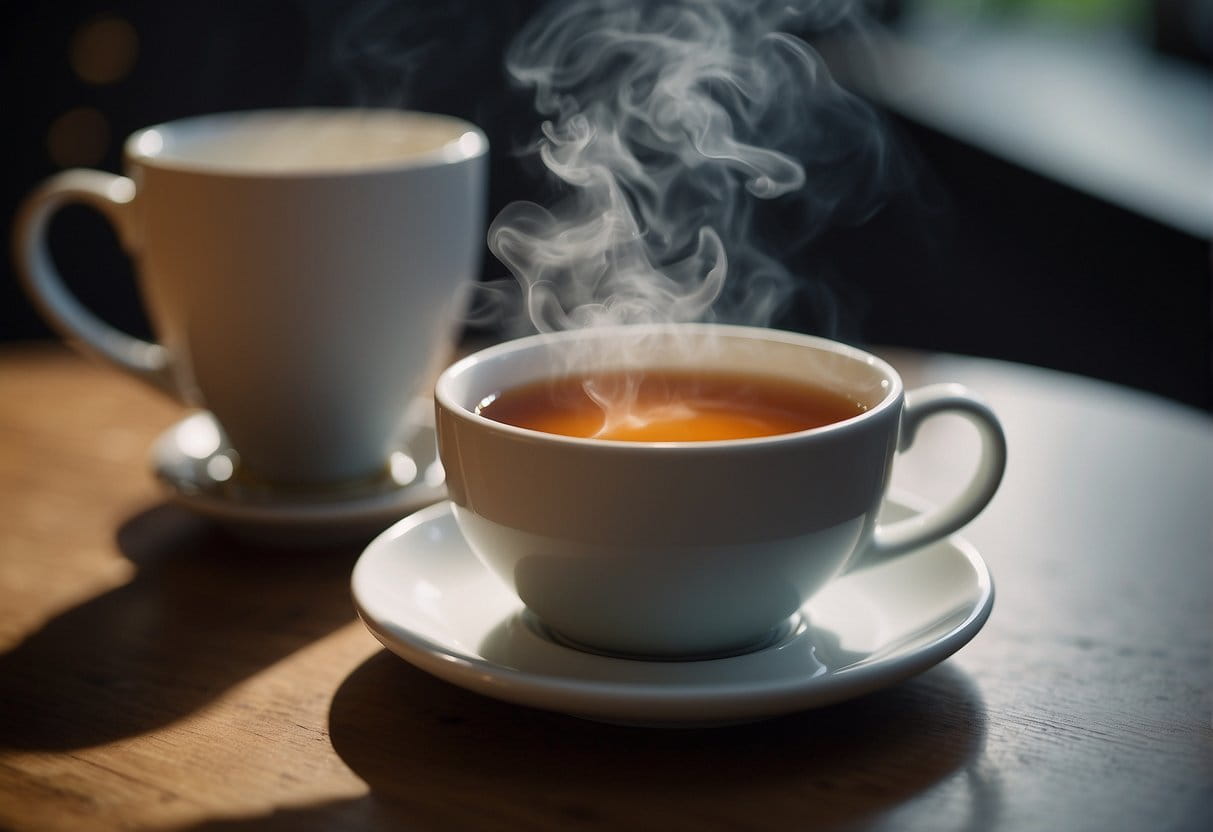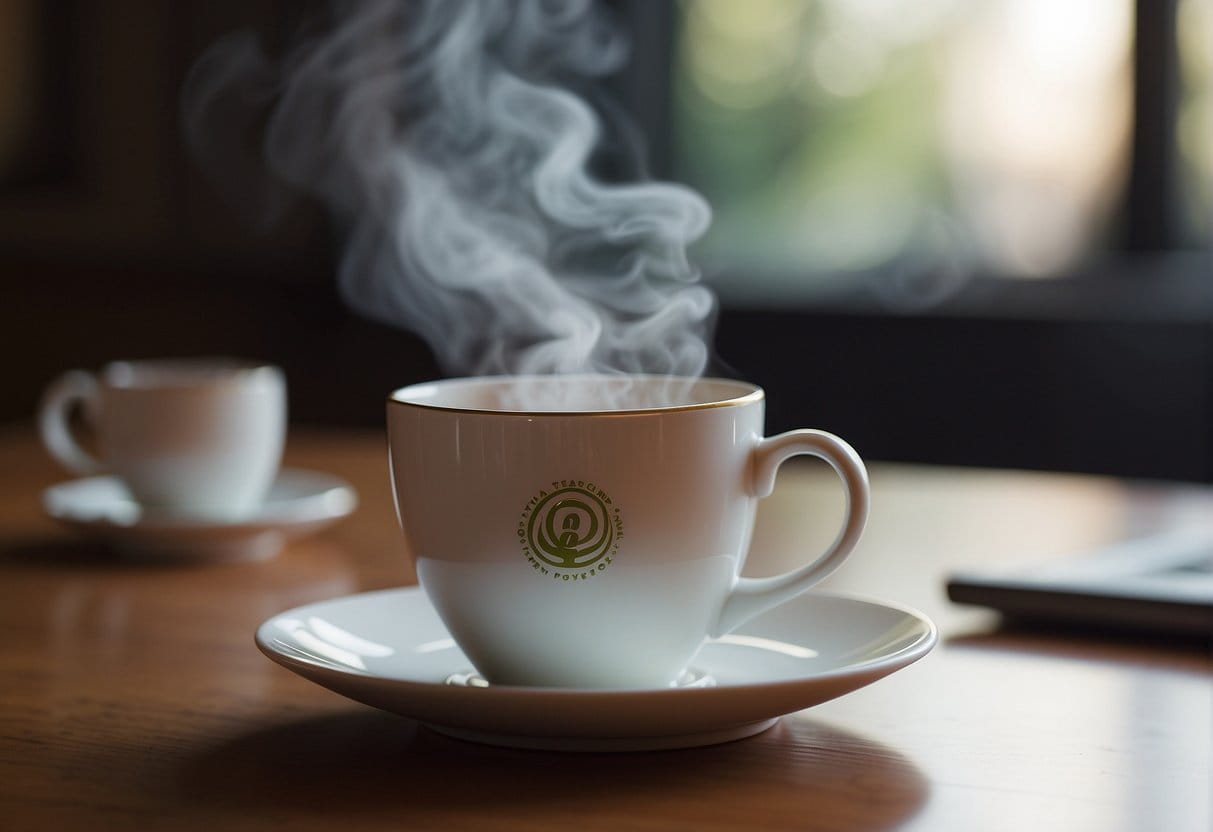Why Does Tea Make You Pee
- Increased Blood Flow to Kidneys: Caffeine raises blood flow to the kidneys, which encourages them to release more water.
- Inhibition of Sodium Reabsorption: Your kidneys filter sodium which can be reabsorbed. However, caffeine inhibits this reabsorption leading to increased sodium loss in urine.
- Antidiuretic Hormone (ADH) Suppression: Caffeine may suppress ADH, which normally helps the body retain water; its suppression results in increased urine output.
The quantity of caffeine in tea can vary, but typically you can expect between 15 to 70 milligrams per 8 oz cup. Your sensitivity to caffeine's diuretic effect may depend on your tolerance and regular consumption.
Remember, moderate consumption is key. Excessive intake of caffeine could lead to dehydration due to increased urination. But for most individuals, the diuretic effect of a few cups of tea is mild and not a cause for concern. To maintain hydration, just ensure to compensate with water intake throughout the day.
Bestsellers
Hydration and Diuresis

When you consume tea, it impacts your body's fluid levels and can lead to increased urination.
Fluid Balance
Your body meticulously maintains a balance of fluids. Drinking tea introduces water into your system, which temporarily increases your body's total fluid volume. However, tea contains caffeine, a natural diuretic, which stimulates your kidneys to produce more urine to expel this extra fluid, in turn restoring fluid balance.
- Intake: Tea consumption increases your fluid intake.
- Output: Caffeinated tea increases urine production.
Hydration Status
Your hydration status depends on the balance between water intake and loss. Adequate hydration is crucial for your body's cellular functions and overall health. While tea contributes to your fluid intake:
| Factor | Description |
|---|---|
| Caffeine Content | Caffeine can lead to temporary diuresis, affecting hydration if not balanced with water. |
| Hydration Contribution | Non-caffeinated or herbal teas may hydrate without significant diuresis. |
- Remember: Monitor your body's response to tea and adjust your hydration accordingly.
Tea Composition

Tea is a complex beverage composed of various types including green, black, and oolong, which contain bioactive compounds like caffeine and antioxidants that can have a diuretic effect, leading to increased urination.
Types of Tea
- Green Tea: Made from unoxidized leaves, preserving more natural substances.
- Black Tea: Fully oxidized, offers a strong flavor due to complete fermentation.
- Oolong Tea: Partially oxidized, sits between green and black tea in terms of color and taste.
- White Tea: Least processed, retains a high amount of antioxidants.
- Herbal Tea: Not a true tea as it doesn't come from the tea plant; made from herbs, fruits, seeds, or roots.
Active Compounds
-
Caffeine: A natural stimulant found in tea leaves.
- Green Tea Content: 12-30 mg per 8 oz cup
- Black Tea Content: 40-70 mg per 8 oz cup
-
Antioxidants: Such as flavonoids and catechins, which can contribute to overall health.
- Types: Theaflavins, thearubigins (more in black tea), and EGCG (abundant in green tea).
- Other Substances: Include tannins, which can affect nutrient absorption, and amino acids like L-theanine, which can have a calming effect.
Body's Response to Tea
When you drink tea, your body's fluid balance and kidney function are affected, which can lead to increased urine production.
Kidney Function
The kidneys filter your blood, removing waste and extra water to create urine. Tea contains caffeine, a diuretic, which means it stimulates your kidneys to excrete more sodium and water. This process can increase the flow of urine as the body expels the excess fluid.
Urine Production
The diuretic effect of caffeine in tea boosts urine output. Due to increased kidney filtration, more urine is produced faster. Your bladder fills more frequently, causing you to feel the need to urinate more often.
Health Benefits and Considerations

Consuming tea offers various health advantages but also requires awareness of certain risks. The balance between these factors is crucial for your well-being.
Benefits of Drinking Tea
-
Antioxidant Properties: Teas, especially green and black varieties, contain antioxidants like polyphenols and catechins. These substances can help mitigate oxidative stress and lower your risk of chronic diseases.
Lao Ban Zhang
-
Cardiovascular Health:
- May improve blood flow
- Can reduce LDL cholesterol and blood pressure
-
Mental Alertness: The caffeine content in tea can enhance your brain function, leading to improved concentration and alertness.
-
Digestive Health:
- Herbal teas, such as peppermint and ginger, are known to aid digestion.
- Can alleviate gastrointestinal discomfort.
Considerations and Potential Risks
-
Caffeine Sensitivity: Tea contains varying levels of caffeine; excessive intake may lead to:
- Restlessness
- Insomnia
- Increased heart rate
-
Iron Absorption:
- Certain compounds in tea can inhibit the absorption of non-heme iron, typically found in plant-based foods.
- Consuming tea with meals may affect your iron levels, especially if you have an iron deficiency or are at risk.
-
Hydration and Diuresis:
- The diuretic effect of caffeine can lead to increased urine production, which might contribute to dehydration if you're not consuming enough fluids.
- Balance your tea intake with water to maintain proper hydration.
Frequently Asked Questions

The components in tea, such as caffeine, and their diuretic effects can lead to increased urination. Understanding these effects can help manage your tea consumption and its impact on your body.
What properties in tea contribute to increased urination?
The caffeine content in tea acts as a mild diuretic, which can cause your body to produce more urine. However, tea also contains other compounds like theophylline, which may enhance this diuretic effect.
Is there a difference in diuretic effect between caffeinated and decaffeinated tea?
Caffeinated tea has a greater diuretic effect than decaffeinated tea due to the presence of caffeine. Decaffeinated tea may still lead to increased urination, but to a lesser extent.
How does the diuretic impact of herbal teas compare to other types of tea?
Herbal teas commonly lack caffeine, which reduces their diuretic effect compared to traditional tea varieties. However, certain herbs may contain other compounds with diuretic properties.
Can the consumption of green tea affect the frequency of urination?
Green tea, like other caffeinated teas, can increase the frequency of urination due to its caffeine content. The level of impact varies depending on the individual and the amount of green tea consumed.
Is frequent urination a common response to drinking tea?
Frequent urination can be a common response to drinking tea, especially in individuals sensitive to caffeine or when consuming large quantities of tea.
How does the fluid intake from drinking tea influence bladder health?
Maintaining adequate fluid intake, including from tea, is crucial for bladder health as it promotes regular bladder function and flushes out waste. However, excessive consumption of diuretic beverages like tea may lead to more frequent urination and could cause dehydration if fluids are not replenished.
← Older post Newer post →











